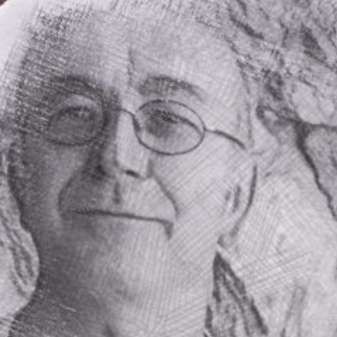Built on the site of a Franciscan friary which was dissolved in 1559, Greyfriars Kirk is one of the treasures of Edinburgh's 'Old Town'. A rich tradition of music-making has grown there, due to its striking interior and fantastic acoustic. Add evening candlelight to this and you have the perfect setting for the dark, primal urgency of Bronius Kutavičius' 'Northern Gates' from The Gates of Jerusalem (1991). This arresting work opened the Scottish Ensemble's sixth and final 'Baltic Renaissance' tour date. Depicting the holy city as described in the Book of Revelation, Kutavičius' dense, dissonant chords are urged along by bass drum and chains. Like the best ritual music, this insistent texture continues pretty much uninterrupted - the idea being to let the sound overcome you. The Scottish Ensemble's committed performance certainly allowed the audience to travel a long way back in history in four-and-a-half minutes.
When musicians play standing up - as do the upper strings of the Scottish Ensemble - body language becomes a much more visible part of the performance. The vigorous movements of some members during 'Northern Gates' seemed to be driving downwards, as if the players couldn't get close enough to the earth. The segue into Purcell's Dance of the Furies occasioned an unmistakable uplifting of posture. The change in sound which provoked this was as striking; the clarity felt like the auditory equivalent of suddenly looking through clear glass, having strained to see through Hessian. The soaring music of these moments from Dioclesian (1690) suggests that aching beauty is simply part of Purcell's currency, even when portraying adversarial drama. The ensemble and sense of excitement in the fierce passages in this work were outstanding.
Two movements from Erkki-Sven Tüür's Show (1993) made separate, programme-punctuating appearances in the first half. Action and Illusion pulse with electrifying rhythm - but not regular meter. Deprived of reliable pulse, the audience seemed to hang on to the piece all the more urgently. This high-octane string writing, fuelled by invigorating articulation, was breathtakingly delivered.
Occupying the opposite end of the rhythmic spectrum was Arvo Pärt's Fratres (1977). The distant and yet instant soundworld of Pärt, together with candlelight and ecclesiastical setting, effortlessly conveyed those essentials of the monastic tradition - stillness and community - suggested by the titular idea of 'brothers'. Stillness was secured through use of harmonics and by either avoiding or minimising vibrato; the spirit of community was aided by something common to many of the Baltic pieces - the absence of obvious counterpoint. The pacing of this performance was beautiful. The gradual intensification from the opening cello drones and upper string harmonics towards more assertive 'stopped notes' was so controlled that, at its peak, one could have sworn the dynamic was as loud as that of the evening's more volatile pieces. Yet, it was probably a fraction of that. An imposing volume, it would seem, is as much to do with context as decibels.
I have heard the Scottish Ensemble perform two versions of Purcell's Fantasy upon One Note (1680). The first featured an on-stage quartet and a perambulating violist providing the omnipresent F promised in the title. The Greyfriars version employed larger forces - perhaps to suit the larger building - and the sound was magical.
The culmination of this excellent concert was Pēteris Vasks' Distant Light (1997), a concerto for violin and string orchestra. Doubling as artistic director and soloist, Jonathan Morton gave an outstanding performance of this moving work which, in addition to three solo cadenzas, features passages of improvisation. Many may disagree, but I considered it to be evidence of Morton's consummate musicianship that the improvised sections did not stand out from the composer's written musical language. Vasks' style could be described as more romantic that that of his Baltic contemporaries; the harmonies are less bare and there are certainly more peaks and troughs than in, say, Pärt. But it remains light years from 'late romanticism' and I felt that the Scottish Ensemble really hit the spot here in absorbing and conveying the temperament of this beautiful, unsentimental piece.
As befits a truly moving final item, there was no encore. However, there was an interesting prelude to the evening as a whole, in the form of a Facebook link to a Spotify playlist. Compiled by the Scottish Ensemble's Marketing and Development Manager, Keren Nicol, this audio flyer offered those inclined an opportunity to acquaint themselves with the less familiar items on the programme - social media at its best.


